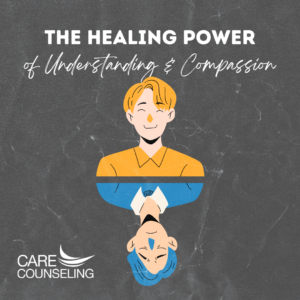The Healing Power of Understanding and Compassion

Empathy, the ability to understand and share the feelings of others, is a powerful and transformative force that profoundly impacts mental health. In the context of mental well-being, empathy plays a crucial role in fostering emotional connections, reducing stigma, and promoting a sense of belonging. Let’s explore the healing power of empathy, its positive effects on mental health, and how to cultivate empathy to create a more compassionate and supportive environment.
- Understanding Empathy in Mental Health
Empathy is more than just sympathy or feeling sorry for someone. It involves genuinely comprehending and acknowledging another person’s emotions, experiences, and struggles. For individuals facing mental health challenges, empathy can be a lifeline of understanding and acceptance.
- Fostering Emotional Connections
Empathy fosters emotional connections by creating a safe space for individuals to share their experiences without fear of judgment. Feeling understood and supported enhances one’s sense of belonging and reduces feelings of isolation often associated with mental health issues.
- Reducing Stigma and Breaking Barriers
Empathy can break down barriers and reduce the stigma surrounding mental health. By empathizing with others, we recognize the common humanity we share, promoting open dialogue and understanding.
- Enhancing Therapeutic Relationships
In therapeutic settings, empathy is a core element of effective mental health treatment. Mental health professionals who practice empathy build strong therapeutic relationships, creating a conducive environment for healing and growth.
- Empathy and Emotional Regulation
Being empathetic towards others can also benefit our emotional regulation. Understanding the emotions of others can help us manage our reactions, respond thoughtfully, and reduce conflict.
- Cultivating Empathy
- Active Listening: Engage in active listening when someone shares their experiences. Pay attention to their words, body language, and emotions to genuinely understand their perspective.
- Put Yourself in Their Shoes: Try to imagine what it feels like to be in the other person’s situation. This perspective-taking can foster empathy and understanding.
- Validate Their Emotions: Acknowledge and validate the feelings of others without judgment. Let them know that their emotions are valid and heard.
- Practice Self-Reflection: Reflect on your own experiences and emotions to connect with similar feelings others may be going through.
- Educate Yourself: Learn about mental health conditions and their impact to gain a deeper understanding of what others may be experiencing.
- The Impact of Empathy on Mental Health
- Emotional Support: Empathetic individuals provide emotional support, reducing feelings of loneliness and isolation often associated with mental health challenges.
- Improved Coping: Feeling understood and supported can enhance coping mechanisms, enabling individuals to navigate difficult emotions more effectively.
- Reduced Stress: Empathetic interactions can reduce stress levels by fostering a sense of connection and safety.
- Enhanced Resilience: Empathy strengthens emotional resilience by providing individuals with the support and validation they need to overcome challenges.
- Empathy in Communities and Organizations
Promoting empathy within communities, workplaces, and educational institutions creates a culture of understanding and support. By encouraging open conversations about mental health, we can reduce stigma and provide resources for those in need.
As we cultivate empathy in our lives and communities, we contribute to a more compassionate and understanding society. Let us embrace the healing power of empathy to foster emotional well-being, break down barriers, and support those facing mental health challenges on their journey to healing and growth.



























